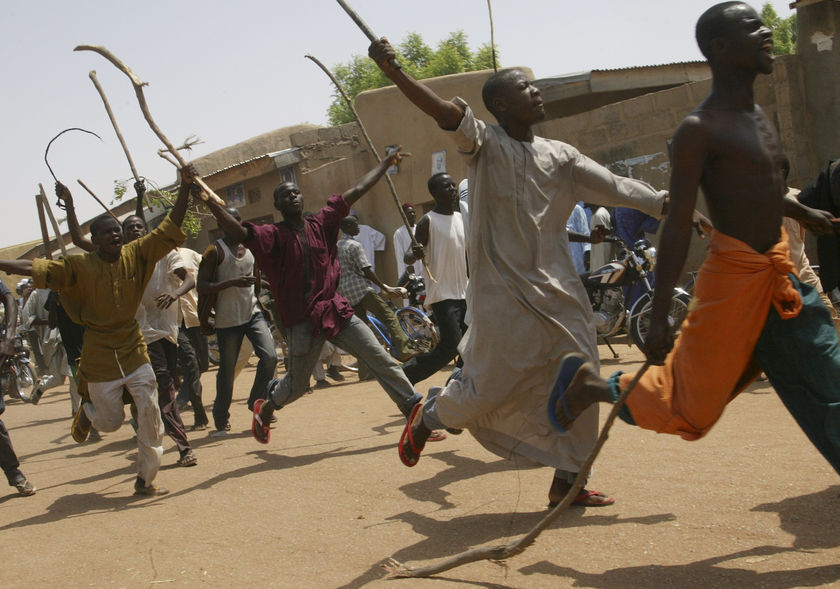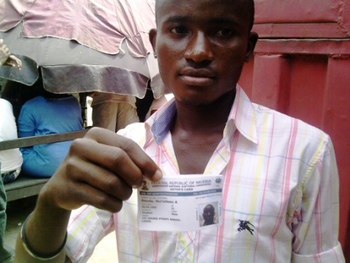World View – June
Patriarchs, Patriots & Politicians: The Legacy of Africa’s Leadership
by ‘Damilola Odunayo Oyedele
 In family, business and political life, African society is arguably the most patriarchal of the world’s cultures. From Cairo to Cape Town, customs which are as strong as they are varied illustrate the role of male leadership as a double-edged sword, associated with equal amounts of benefit and responsibility.
In family, business and political life, African society is arguably the most patriarchal of the world’s cultures. From Cairo to Cape Town, customs which are as strong as they are varied illustrate the role of male leadership as a double-edged sword, associated with equal amounts of benefit and responsibility.
Most of Africa’s sub-cultures dictate that the duty of shaping a family’s identity rests on the father’s shoulders. Thus the head of the home is guided by the knowledge that anything he does is powerful enough to colour the future of even the members of his lineage that are yet unborn.
In Nigeria, for example, it is not uncommon to hear that one’s answer to the question, ‘who is your father?’ or ‘who is your grandfather?’ can lead to the opening of the door to a critical opportunity. Oddly, answering those questions could bring the same door to a loud slam in the individual’s face. Thus, a good father strives to live in such a way that a good name will remain long after he is gone. Simply, he is on a quest for a noble legacy. Certainly not all men fall on the ideal side of the spectrum, but the potency of a father’s ‘name’ is real nonetheless.
Values and philosophies are usually cultivated at the lowest level, the family unit, and then spread to the highest tiers. However, while the mentality and spirit of fatherhood (in the form of responsibility and accountable leadership) has been carried over into the continent’s corporate world to some extent, there is still a significant lack on Africa’s political scene.
History records a handful of leaders – South Africa’s Nelson Mandela, Julius Nyerere of Tanzania and Ghana’s Kwame Nkrumah – for whom legacy was more important than short term gain; but largely, in the place of guidance, dependability and responsible headship, the majority of those in government rape and plunder their countries’ resources. Indeed, the political plague of much of the continent consists of incompetent, power-hungry and inward-looking leadership; and the majority of [these leaders] are men.
Luckily in politics, unlike with birth, the populace has the right to choose (or at least attempt to choose) who will be at their forefront; and it seems that after about half a century of independence, African democracies have finally begun to find their feet. From the thunderous protests on the streets of Egypt and Libya in the early months of 2011 to the more peaceable demands from the youth of Nigeria in the April elections, citizens are now demanding for leaders who will be no less than benevolent fathers of their nations.
Granted, no single leader or group of leaders is the be-all and end-all to the national problems of a country. It is equally important to dispense with that mentality–which many Africans have–and instead take up individual responsibility for problem-solving in whatever way we can. However, it is my belief that with presidents, governors and other heads that run the affairs of government with the implicit synchronisation of leadership, fatherhood and a lasting legacy, there will be much-needed transformation in a continent which has been tagged as ‘dark’ for far too long.
[learn_more caption=”About The Writer” state=”open”]  ‘Damilola Odunayo Oyedele is a journalist with a degree in Economics. She is Associate Editor of Y! Magazine (www.ynaija.com) and lives in Lagos, Nigeria.
‘Damilola Odunayo Oyedele is a journalist with a degree in Economics. She is Associate Editor of Y! Magazine (www.ynaija.com) and lives in Lagos, Nigeria.
Website: www.beautifulwings.wordpress.com
Twitter: @DamiOyedele[/learn_more]

